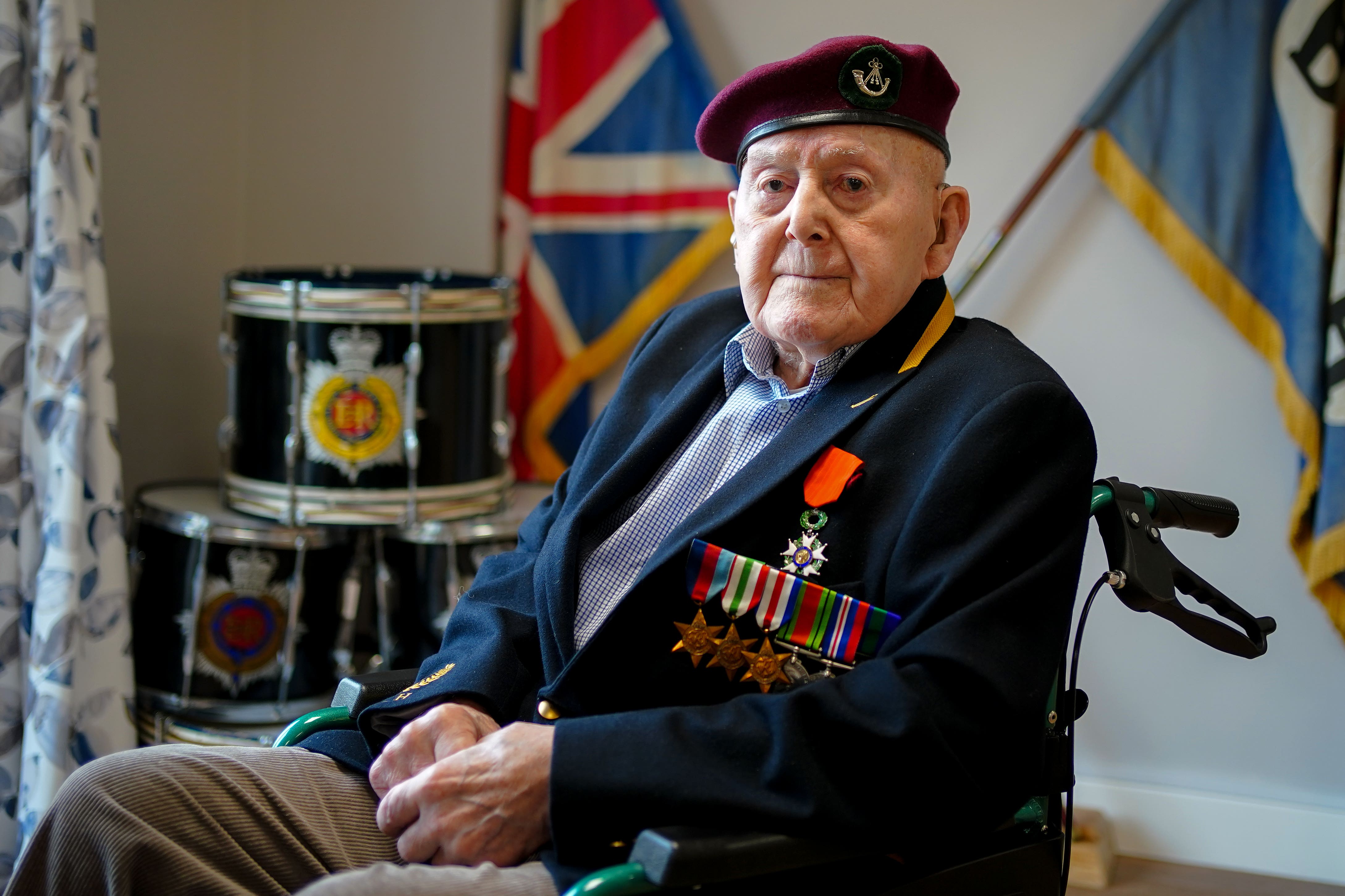Former paratrooper remembers wait for D-Day invasion after flying in on glider
Corporal Peter Belcher, now aged 100, and his colleagues were flown in on gliders to capture vital bridges ahead of the seaborne invasion.

As Allied troops were making their way over the Channel for the D-Day landings, Corporal Peter Belcher and his battalion were already in place in Normandy, waiting.
Mr Belcher, now 100, and his colleagues from the Airborne Regiment, 4th Battalion Oxfordshire and Buckinghamshire Light Infantry were flown in on gliders to capture vital bridges ahead of the seaborne invasion.
Setting off at about 8pm on June 5 1944 from RAF Harwell in Berkshire, he and five of his colleagues sat in the back of the glider, with a six-pounder anti-tank gun, as it circled round above England before eventually landing in Normandy at about midnight.
Speaking to the PA news agency at Broughton House veterans’ care home in Salford, Greater Manchester, Mr Belcher said: “I was scared. It goes very quiet. You hear the drone of the plane all the way, you see, and then suddenly it goes quiet. You can hear a pin drop.”
Mr Belcher, who grew up in Wiltshire but moved to Manchester after the war, got to Normandy after the first arrivals and then had to “dig in”.
He said: “Our job then was to keep low until we heard the guns from the sea at 4 o’clock in the morning.”
He said between 4am and 6am they heard the gunfire from the beaches.
“Some of the shells come over amongst us,” he said.
“We had casualties but nowhere near as great.
“When you go into action, the planners, even for the troops landed by the sea, allow 50% casualties. Half of you are going to be out of action, that’s what they assess. That happened on the beaches, more so with the Americans on the beaches.
“I couldn’t tell you how many casualties we had. We had the first one, but as a battalion on D-Day I don’t think we had a lot, nowhere near expected.”
Before the end of the day, troops had come from the French beaches to the bridges – one of which was renamed Pegasus Bridge in honour of the operation.
If you join the forces you’re trained to fight and trained to kill. So you must expect some of you are going to be killed. My brother and I, we were lucky
Mr Belcher said: “A piper from the 51st Highland Division was leading them up. Then there was almost a battle between us and the 51st Highland Division because they put the Highland Division sign on the bridge and they hadn’t been there!”
The former paratrooper has been back to Normandy on four occasions, the last on the 40th anniversary where he was involved in a parachute re-enactment before meeting the late Queen.
Mr Belcher was in the same battalion as his older brother, Sam, a sergeant major.
Both survived the war, going on after D-Day to fight in the Battle of the Bulge – the last major German offensive – and Operation Plunder to cross the Rhine.
Mr Belcher said crossing the Rhine proved far more dangerous for his battalion than D-Day.
He said: “We had 110 killed and 265 that were unfit to carry on in the two hours of landing. A lovely morning, the sun shining and they knew we were going.”
When the war ended, Mr Belcher was on the Baltic coast and later went to a concentration camp where he saw bodies “piled up”, and some survivors.
Asked if he felt proud of what he had done during the war, he said: “I’ve never thought of it that way at all really. We had a job to do.
“If you join the forces you’re trained to fight and trained to kill. So you must expect some of you are going to be killed. My brother and I, we were lucky.”
Bookmark popover
Removed from bookmarks